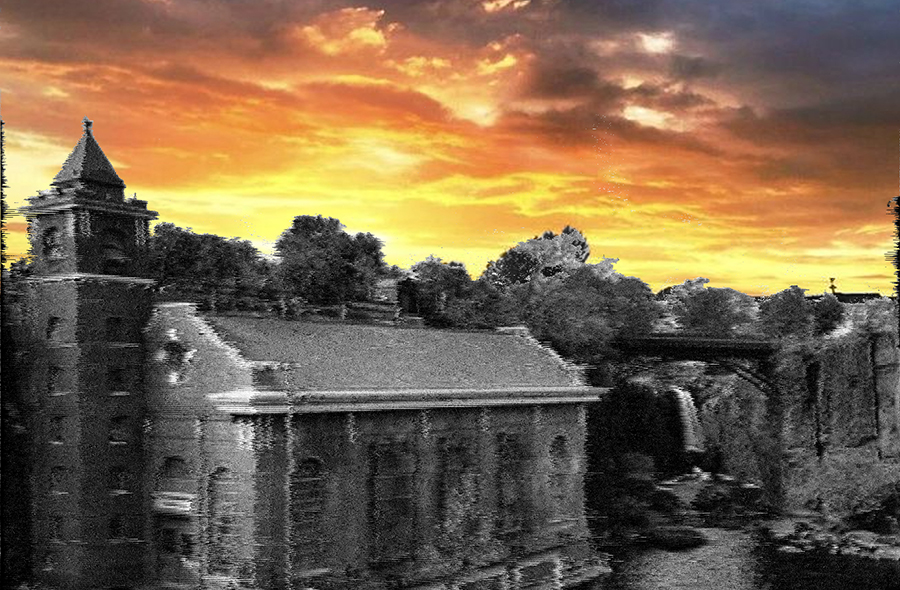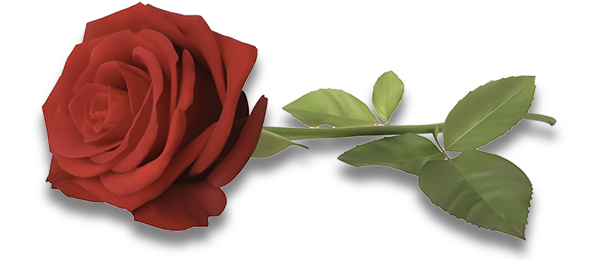

June Avignone
Writer
· Home
· About / Contact
BOOKS
·
[in progress]
· The Secret Little Ones Of Turtle Back Island
· On Going Home Again
· Images Of America: Downtown Paterson
· Cianci Street, A Neighborhood In Transition
· Travelling Small Distances
· A Place Like Paterson
POETRY, ESSAYS,
ARTICLES, MORE...
· What You Love Most On Mill Street
· Wolf Nose
[winner of an Allen Ginzberg Prize]
· The Cure We Wait For
· Suburban Backyards
· Wildly Enjoying the Process
· more to come...



On Leaving Paterson
June Avignone
Special to The Herald News - Sunday, March 4, 2007
I am at a melancholy point in my moving process, sorting through closets, old files of news clippings of things I have written during my 24 years of living in a restored silk mill for artists in downtown Paterson. It is exhausting work, separating the important from the inane. As the poet Allen Ginsberg said to me during an interview with the Paterson News in the early 1980s, "Things are symbols of themselves."
Beneath the first floor window of my apartment is a clear view of the raceway system. The waters are frozen. Cardboard boxes, diapers, Burger King containers and soda cans float on top of the ice, all discarded by residents who consistently seem to mistake the stagnant waters for huge garbage bins. I am ready to change my view. A rose garden would be nice. But I digress.
The man-made water system powered the mills below the Great Falls, a plan set forth by a few wealthy investors who founded Paterson as a corporation, as opposed to chartering it as a city, in 1792.
Today, city bureaucrats systematically fill the much touted historic raceways with water from the Passaic River, amazingly rich with fish, turtles, frogs, and plant life. Then, for no apparent reason, the water is drained. Everything is left to suffocate and die. Past and present mayoral administrations have made direct promises to look into and correct the situation. Nothing has been done.
A few summers ago, hundreds of dying carp and other creatures baked in the sun of the drained raceway, a fish fry, Paterson-style. The native Lenapes revered nature here once upon a time.

A Paterson bred, first-rate historian friend of mine summed it up best recently when he said, "The city's coat of arms featuring the planting of a mulberry bush with 'Hope and Labor' beneath it in Latin needs to be changed to a symbolic 'What's-in-it-for-me?' fist grasping a wad of money."
But while I pack up to plant some rose bushes in front of a Victorian house we can afford in upstate New York, with an active neighborhood association that seems concerned about quality of life issues, where the past can meet the present, I can't help but reflect upon the Paterson I admire, as well as abhor.
When I first moved to the artist housing mill apartments, I was a young writer searching for an alternative to high New York City rents. Paterson's mill buildings and the authentic visceral feel of the Cianci Street neighborhood somehow transported me back to my early childhood in the Bronx.
Our working class, ethnically mixed neighborhood was becoming dangerous. No longer could we keep our apartment doors open at night. I hid under the steps when the moving vans came to take us to Jersey, not wanting to leave my grandmother and grandfather, or the familiar city streets and buildings of brick behind. They found me. I did not go peacefully.

Stuck deep between two files, like the truth always seems to be, I found a copy of a photograph yesterday of the Paterson Pageant, a staged reenactment about the 1913 strike at Madison Square Garden in which thousands of workers played themselves to raise money for hungry strikers. Greenwich Village artists, such as writer Jack Reed and painter John Sloane, joined forces with the more than 23,000 striking Paterson workers and leaders of the Industrial Workers of the World to fight for rights we take for granted today, like the 8-hour day.
The romantic history of my neighborhood even had a face. Tommy Greco, a dignified old gentleman and owner of the Question Mark Bar recalled how, as a little boy, he served beer and soup for a nickel to striking workers from all ethnic backgrounds when I interviewed him for the Paterson News in 1985 (back in the day when the city still had a daily newspaper to call its own, even though there were more reporters covering Wayne at that point than Paterson). I left the paper after former Mayor Frank X. Graves, Jr. became incensed over a story I wrote in which he did not come out smelling like a rose, and flustered editors "promoted" me to Wayne soon afterward, shortly before firing me.
I started a small, progressive quarterly newspaper called the Mill Street Forward, banging my head naively against a wall for a variety of causes, making some progress over the years (but not enough to justify my aching head).
Last year, the Question Mark Bar, despite its historic status, was knocked down by a developer in a neighborhood that has increasingly given way to drug dealers, garbage, and unyielding Route 80 feed-in traffic, amidst relentless, self-serving political Renaissance babble over the years.

In addition to downtown go-go clubs, where women will routinely do just about anything for a bill with the face of Alexander Hamilton, an absurdly loud bar opened across the street from me two years ago. The bar had two guns pointing at each other on its canopy, a literal sign of things to come. Nightly violent street fights, obvious drug activity, and sleepless nights for residents became the norm. After a year of my ranting to City Hall, the bar was closed with the help of a few neighbors, the Alcoholic Beverage Commission and police. I am tired of fighting.
But I stayed here, for over two decades, and for good reasons. As fate would have it, I also found a birthday card yesterday in an old book from my dear dad, Americo, who worked long hours of overtime so I could go to New York University to be a writer. He died this summer. The card features a rose and a woman's hand writing with an antiquated pen, and he wrote: "Enlighten my heart. Write about the beautiful things. The bad ones we know. Strengthen my soul. Illuminate our future."
And so, with his words in mind, I am deeply grateful for what Paterson has given me over the years. My politics now allow me to see that the truth lies not in the blacks or whites, but in the uncomfortable grays, constructed from a fabric that phony liberals or mean-spirited conservatives can not penetrate.
Beyond solid bonds I have made with a few talented artists in the mills, I have made friends of all colors and walks of life in my historic 'hood. There is Francis, an ornery and sweet old man, and spiritually astute Carmen, who both work at the Star of Hope Mission on Broadway next to the bus terminal, my favorite thrift store. Established in 1913 to help the poor, the Star of Hope actually does just that, while literally providing me for years with a classy, worry-free wardrobe, much like the lilies of the field.
I miss gentle Big John. The former maintenance mechanic, ironically from the very dye factory that turned my apartment blue, fed the pigeons every day in the littered park by the statue of Lou Costello holding his baseball bat. "Man just can't make these," the South Carolina native once said to me, gesturing to the birds bustling around his feet.
There's the Old World social clubs on Cianci Street where frothy cappuccinos are served, not by corporate baristas but by real Italians, including my good friend Vince, who has truly been my guardian angel, albeit with a dirty face. Josephine at Pantano's Dairy makes a mozzarella that simply melts in your mouth and gives out better advice from behind her counter than any high-end shrink in Montclair or Ridgewood ever could.
Father Joe, the quintessential streetwise priest at St. Michael's R.C. Church on Cianci Street, got back home safely recently from a year as a U.S. Army chaplain in Iraq and Afghanistan. Built in 1928, the beautiful downtown sanctuary has provided me with much peace over the years. Who can help but admire Gaetano Federici's stone relief sculpture above the church door of the mighty winged warrior who thinks nothing of stomping on the head of Satan?

I will miss the majesty and roar of the Great Falls, the early morning play of light and shadow on the streets, the architectural beauty of the downtown buildings beneath their new garish plastic facades.
Paterson deserves much better than it gets.
It possesses a radical past worth recognizing, in a real sense, perhaps more than ever as we send out troops from mostly working class families overseas. But while my rose-colored glasses may have fallen off over the years, perhaps into the muck of the raceway system, my inner vision is clearer because I have called Paterson my home.
I leave Paterson a very rich woman, in all ways that count. And I will miss it.
